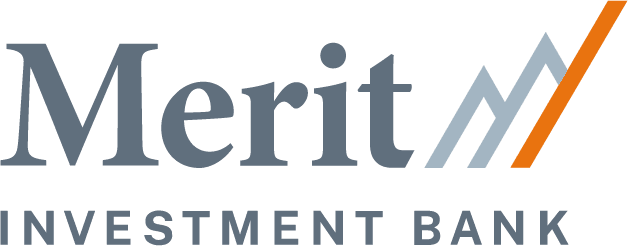Guarding the Secret: Confidentiality in the M&A Process and Why It Matters
Many sellers are deeply concerned about maintaining confidentiality in an M&A process, and rightfully so.
There are numerous stakeholders that need to be considered—employees, customers, suppliers, lenders, board members, and even competitors, to name a few. M&A is complex enough without having to manage the fallout of a leaked deal. A confidentiality breach can lead to loss of talent, customer churn, competitor advantage, or even a deterioration of trust internally.
In our experience as investment bankers, we know that confidentiality is not just a matter of formality—it’s a strategic asset.
Should You Tell Your Team?
A major decision every owner must face is whether to involve employees in the process—and if so, who, when, and how.
M&A Axiom: Owner dependence kills deals.
Buyers don’t just acquire companies—they acquire systems, processes, and people. If the business is entirely dependent on the founder or CEO to run, that’s a red flag for acquirers and private equity firms. That’s why strategically involving your leadership team early can often increase valuation and accelerate post-sale transitions.
Key considerations include:
- Who owns customer relationships?
- Who manages day-to-day operations without your involvement?
- Who are your “next generation” leaders capable of scaling to the next level?
We often pose the following questions to help assess management readiness:
- If you were hit by a bus tomorrow, how would your company function next week? Next quarter?
- Have you ever unplugged for a month? What happened?
- Who are the 2-3 internal leaders who could flourish if you stepped aside?
- Who “owns” your top 20 customer accounts—and is it you?
Confidentiality Is a Dual Responsibility
While we play many roles throughout a transaction—bankers, advisors, financial analysts, pseudo-auditors, even emotional sounding boards—our primary role is protecting your deal, your business, and your brand.
That being said, in 95% of the rare breaches we’ve encountered, the leak originated from within the seller’s company—often unintentionally.
This is why early coaching on information management is critical. Team members must be trained on how to deflect, redirect, or respond to off-the-cuff questions at trade shows, from suppliers, or even in casual industry banter.
Pro Tip: Prepare Your Response Before You Need It
Here’s a tested playbook when someone says, “I heard you’re for sale”:
- “Ha! For the right price, anything is for sale, right?”
- “Honestly, I’m having way too much fun building this to think about an exit right now.”
- Avoid defensive answers like: “Who told you that?” or “That’s not true!”
Even if there’s no factual basis, industry gossip or a competitor’s speculation can make its way back to your team or customers. Your preparedness becomes your protection.
The Buyer’s Role in Maintaining Confidentiality
What about buyers?
Professional acquirers—private equity firms, family offices, and strategic buyers alike—understand the high stakes of confidentiality breaches. Reputable buyers know that one misstep could cost them not just the deal, but access to future deal flow.
Here’s how we mitigate confidentiality risks in buyer outreach:
- We use anonymous executive summaries (no-name teasers) that highlight opportunity without disclosing your company’s identity.
- No NDA, no name. No exceptions.
- Buyers are vetted and tiered, ensuring only serious, qualified buyers gain deeper access to data.
- Reputable investment banks track buyer behavior—those who break protocol are cut off from future opportunities.
In fact, many buyers—especially financial buyers—won’t even share the opportunity with a potential portfolio company until substantial internal vetting is done, protecting against conflicts or leaks.
Aligning Management Incentives
For those employees or executives who must be brought into the process, it’s crucial to:
- Place them under strict non-disclosure agreements (NDAs).
- Establish change-in-control agreements, retention packages, or “stay bonuses” to ensure their cooperation and motivation.
- Reinforce the importance of timing, clarity of messaging, and discretion during interactions with vendors, partners, or subordinates.
Remember, the success of an M&A process isn’t just about finding a buyer—it’s about presenting a stable, high-performing company with a future beyond the founder.
Bonus Insight: Buyers Buy People, Not Just Profits
Buyers increasingly assess leadership as a critical part of valuation. Many entrepreneurs are top-tier operators, but may not have experience managing a $30MM, $40MM, or $50MM business, or scaling to multiple shifts and hundreds of employees.
A strong second-tier management team isn’t just helpful—it’s a competitive advantage.
In management meetings with buyers, we often see deals derailed when owners dominate the conversation or fail to showcase team capabilities. When buyers hear “I” instead of “we,” they worry. Their assumption: once the seller exits with a payout, passion and engagement will drop.
By contrast, demonstrating a cohesive, empowered leadership team can significantly increase buyer confidence—and sale value.
The Founder’s Dilemma: Delegate and Elevate
Many owners reach a point of clarity where they realize: “Maybe this company could thrive even more if I stepped back.”
This doesn’t mean stepping away entirely. It means replacing legacy thinking with scalable leadership, giving key employees the room to lead, grow, and shine. It’s also the best way to keep deals alive—and maximize value at exit.
Final Thoughts: Confidentiality Is a Cornerstone of a Successful Exit
At Merit Investment Bank, we understand that confidentiality isn’t just a checkbox—it’s a fundamental part of protecting your legacy, your employees, and your future. We bring decades of M&A experience, industry best practices, and strategic discretion to every engagement.
Whether you’re 6 months or 6 years from selling, preparation matters. Let’s talk about the path to growth, leadership succession, and building generational wealth through recapitalization or sale.
Talk to the Experts at Merit Investment Bank
J. Craig Dickens
Chairman
Craig.Dickens@MeritInvestmentBank.com
253-370-8893


0 Comments